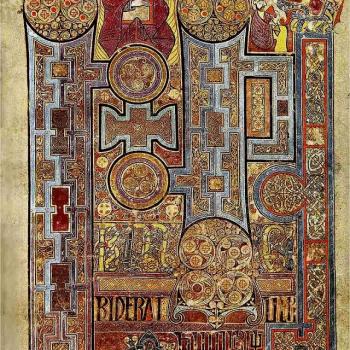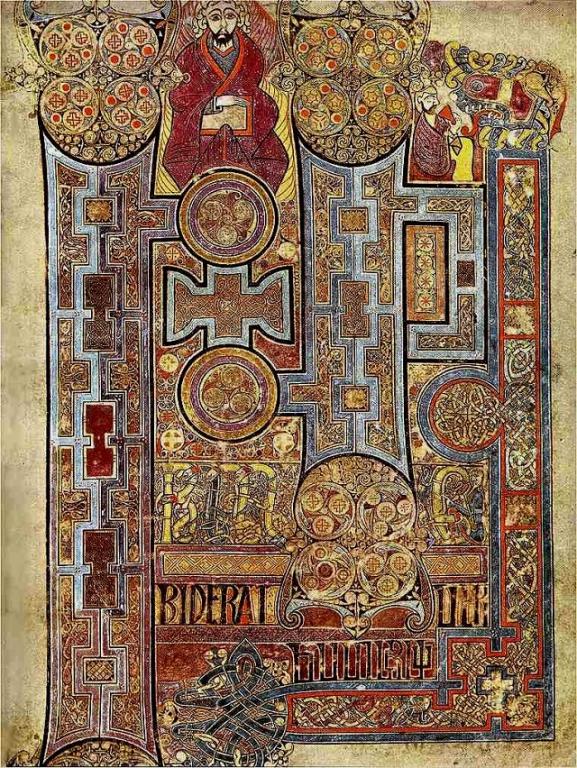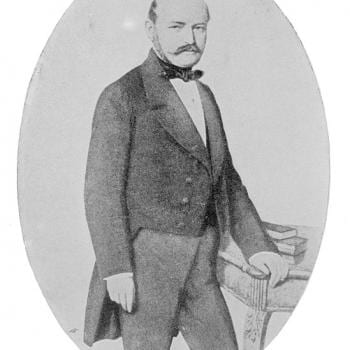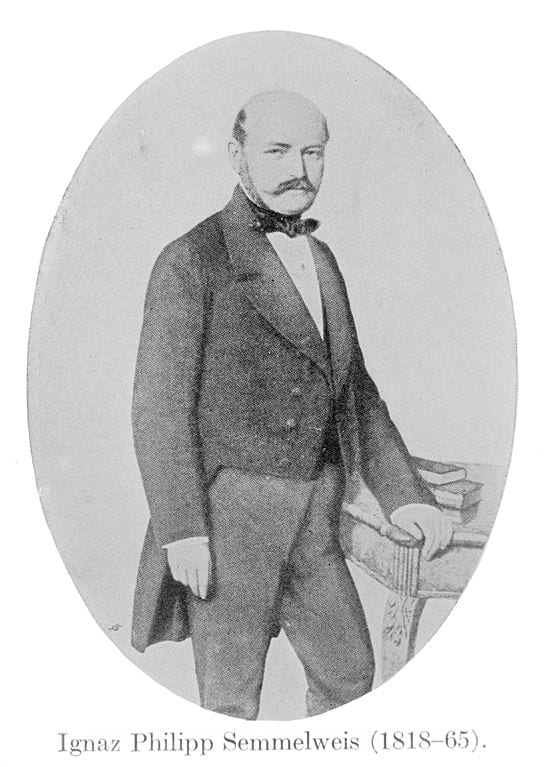
“The Gospel According to Saint Luke” was written by atheist Vexen Crabtree in 2016. I will examine his “anti-biblical” arguments to see if they can withstand criticism. Vexen’s words will be in blue.
*****
It might be that the character of Luke was based on an old Roman pagan story about the healing God, Lykos, from Greek culture, and hence why the text was given the name Luke.
Right-o! I can relate to this, I guess. My name is David, which is based on a King (David), from Hebrew culture. Therefore, I’m not who I am, since I am merely given a title from a mythical Hercules- or Odysseus-like hero who supposedly lived 3,000 years ago.
Out of Mark, 54% is quoted in Luke, and there are a hundred or so versus that, along with Matthew, he took from the source known as ‘Q’. It is surprising that a first-hand eyewitness of Jesus would need to copy so much of other people’s text about Jesus.
Of course, St. Luke never claimed to be an eyewitness of Jesus, so this “point” is completely moot. Luke makes it clear at the beginning of his Gospel that he was not an eyewitness:
Luke 1:1-2 (RSV) Inasmuch as many have undertaken to compile a narrative of the things which have been accomplished among us, [2] just as they were delivered to us by those who from the beginning were eyewitnesses and ministers of the word,
He didn’t claim to see the risen Jesus, either (see Acts 1:2-3).
Luke contradicts the rest of the Bible on quite a few points of theology and gets many elements of Jesus’ life simply wrong (for example, the Roman-decreed census that never actually happened). For these reasons Luke is best not considered trustworthy.
The one who is untrustworthy is Mr. Crabtree (after the ridiculous contention above): projection if there ever was a case. Luke’s trustworthiness has been confirmed again and again by archaeology, and he was an excellent and accurate historian. See:
Archaeology and the Historical Reliability of the New Testament (Peter S. Williams)
Archaeology and the New Testament (Patrick Zukeran)
Archeology Helps to Confirm the Historicity of the Bible (Sheri Bell)
A Brief Sample of Archaeology Corroborating the Claims of the New Testament (J. Warner Wallace)
The Bible and Archaeology: The Book of Acts—The Church Begins (Mario Seiglie)
Archaeology and the New Testament (Kyle Butt)
Luke also made up the detail of the Romans instigating a census and sending people to the home towns of remote ancestors. This was not Roman policy, and although a local census did occur under Governor Quirinius it happened in 6CE, many years after Herod’s death.
For the question of the census, see:
Reply to Atheist Jonathan MS Pearce: Herod’s Death & Alleged “Contradictions” (with Jimmy Akin) [7-25-17]
1. Moral Issues
Luke 11:27-28 is dismissive of the value of motherhood, contradicting Exodus 20:1-2 and Deut. 5:1-23 which says to honour thy father and mother as part of the 10 Commandments.
Luke 11:27-28 As he said this, a woman in the crowd raised her voice and said to him, “Blessed is the womb that bore you, and the breasts that you sucked!” [28] But he said, “Blessed rather are those who hear the word of God and keep it!”
The claim is nonsense, once the passage is properly understood (which atheists never seem to have the time to even try to do). I wrote an entire article about this passage:
Did Jesus Deny That Mary Was “Blessed” (Lk 11:27-28)? [11-19-19]
I have dealt with this (rather irritating) “Jesus was mean / disrespectful / indifferent to Mary” theme in two other articles also:
Jesus’ Interactions with Mary in Relation to Marian Veneration [10-29-08]
“Who is My Mother?”: Beginning of “Familial Church” [8-26-19]
See also: Jesus’ Use of the Term “Woman” [for Mary. Was it Disrespectful?] (by Jimmy Akin)
One easy way to show that Jesus’ [and/or Luke’s] intent was not at all to be “dismissive of the value of motherhood” is to look at some of the translations of the passage that bring out the meaning in a more accurate way:
NKJV But He said, “More than that, blessed are those who hear the word of God and keep it!”
Phillips But Jesus replied, “Yes, but a far greater blessing to hear the word of God and obey it.”
Living Bible He replied, “Yes, but even more blessed are all who hear the Word of God and put it into practice.”
CEV Jesus replied, “That’s true, but the people who are really blessed are the ones who hear and obey God’s message!”
Williams But He said, “Yes, but better still, blessed are those who listen to God’s message and practice it!”
Jerusalem Bible But he replied, “Still happier those who hear the word of God and keep it!”
It’s not a matter of “either/or” or of pitting the blessedness of His mother Mary against something else. He agrees with the point and goes on to make it wider in application, to include others as well (typical biblical and Hebraic “both/and” thinking).
Luke 12:47-48 says something about it being right to punish and beat slaves.
Luke 12:47-48 And that servant who knew his master’s will, but did not make ready or act according to his will, shall receive a severe beating.[48] But he who did not know, and did what deserved a beating, shall receive a light beating. Every one to whom much is given, of him will much be required; and of him to whom men commit much they will demand the more.
The Bible also talks about lovingly correcting children through spankings, etc.:
Proverbs 13:24 He who spares the rod hates his son, but he who loves him is diligent to discipline him.
Proverbs 22:15 Folly is bound up in the heart of a child, but the rod of discipline drives it far from him.
Proverbs 23:13-14 Do not withhold discipline from a child; if you beat him with a rod, he will not die. If you beat him with the rod you will save his life from Sheol.
Proverbs 29:15, 17 The rod and reproof give wisdom, but a child left to himself brings shame to his mother. . . . Discipline your son, and he will give you rest; he will give delight to your heart.
That’s an entire issue unto itself (that would take far too long to address in this “101 atheist objections” context). I have dealt with it twice (one / two). The issue of slavery and the Bible is even more complex and multi-faceted. I’ve addressed that twice at length, too (one / two).
Luke 12:51-53 says Jesus has not come to bring peace but a sword, and has come to divide families, backed up by Luke 18:29 where Jesus says that those who have left relatives behind for Christ’s sake will find great rewards in their current life and in the afterlife. So much for family life.
This is another groundless objection, based on ignorance of Hebrew metaphor and exaggeration (hyperbole) to make a point. See:
Dr. David Madison vs. Jesus #1: Hating One’s Family? [8-1-19]
Madison vs. Jesus #4: Jesus Causes a Bad Marriage? [8-5-19]
Madison vs. Jesus #5: Cultlike Forsaking of Family? [8-5-19]
David Madison vs. the Gospel of Mark #9: Chapter 10 (Christian Biblical Ignorance / Jesus vs. Marriage & Family? / Divinity of Jesus) [8-20-19]
2. Contradictions and Mistakes
The Gospel of Luke amasses quite a series of theological contradictions and historical mistakes
So he falsely claims . . .
For example, Luke argues against the virgin birth of Matthew 1:22-23 and goes to inane length to prove that Jesus is descended biologically from the male line of David (Luke 3:23-38).
It doesn’t follow that he is denying the virgin birth here. Joseph was Jesus’ legal father in terms of Jewish law, whether He was His biological father or not. See:
Reply to Atheist Jonathan MS Pearce: “Contradictory” Genealogies of Christ? [7-27-17]
He manages to contradict himself as a result of stating that Mary conceived Jesus whilst a virgin – although historians note that the oldest versions of Luke did not include the statements of virgin birth as now found in Luke 2:33 and Luke 2:48 (although some Bibles have now restored the original version in their translations).
There is no contradiction in these passages. It’s just yet more atheist hyper-skepticism based on groundless, evidence-free foregone conclusions and ultra-bias.
All of Luke’s insertions about singing angels, barns and mangers are not mentioned in Matthew’s version of the story and it is hard to see how others would not mention them if they happened. Luke simply didn’t know his facts when it came to Jesus’ birth.
No one is obliged to include every detail. It’s a very weak (indeed logically fallacious) argument to assert that “earlier text a doesn’t include details provided by later source b, regarding the same [larger] story x; therefore, details unique to x must be rejected as fictitious.” Anyone can see that this is manifestly false, with just a few moments of consideration.
But in any event, the Gospel of Mark didn’t intend to include the story of the Nativity. He starts with John the Baptist Jesus’ baptism. Nor does the Gospel of John have the story. Matthew doesn’t claim to include the story of the shepherds. So a claim of “insertion” into an existing story is bogus, because it’s “apple and oranges” in terms of most elements of the two accounts, that are unique to each Gospel.
Mr. Crabtree is in no position to judge who knew the “facts” regarding Jesus’ birth (or who is supposedly making up fake “facts”). It’s arbitrary and irrational analysis. These things are verified and corroborated by archaeology and historiography. So, for example, Jonathan MS Pearce, a prominent online anti-theist atheist, who also likes to tear down the Bible, made the absurd statement recently (on 12-18-20):
This also coheres with Rene Salm’s thesis in The Myth of Nazareth: The Invented Town of Jesus that Nazareth did not exist at the time of Jesus, according to archaeological analysis, and not until at least 70 CE.
I immediately shot down this rather ridiculous and outrageous claim with archaeology, noting the article: “New archaeological evidence from Nazareth reveals religious and political environment in era of Jesus” (David Keys, Independent, 4-17-20). It stated:
[T]he archaeological investigation revealed that in Nazareth itself, in the middle of the first century AD, anti-Roman rebels created a sizeable network of underground hiding places and tunnels underneath the town – big enough to shelter at least 100 people. . . .
The new archaeological investigation – the largest ever carried out into Roman period Nazareth – has revealed that Jesus’s hometown is likely to have been considerably bigger than previously thought. It probably had a population of up to 1,000 (rather than just being a small-to-medium sized village of 100-500, as previously thought).
“Our new investigation has transformed archaeological knowledge of Roman Nazareth,” said Dr Dark, who has just published the results of his research in a new book Roman-Period and Byzantine Nazareth and its Hinterland. . . .
The newly emerging picture of Roman-period Nazareth as a place of substantial religiosity does, however, resonate not only with the emergence of its most famous son, Jesus, but also with the fact that, in the mid-first or second century, it was chosen as the official residence of one of the high priests of the by-then-destroyed Temple in Jerusalem, when all 24 of those Jewish religious leaders were driven into exile in Galilee.
This is actually doing science, rather than sitting in armchairs and making historically and archaeologically clueless remarks, as these anti-theist atheist polemicists do (figuring no one will have patience enough to bother challenging them). See also: “Did First-Century Nazareth Exist?” (Bryan Windle, Bible Archaeology Report, 8-9-18; cf. several related articles from a Google search). Did it exist before Jesus’ time? It looks like it did:
The Franciscan priest Bellarmino Bagatti, “Director of Christian Archaeology”, carried out extensive excavation of this “Venerated Area” from 1955 to 1965. Fr. Bagatti uncovered pottery dating from the Middle Bronze Age (2200 to 1500 BC) and ceramics, silos and grinding mills from the Iron Age (1500 to 586 BC) which indicated substantial settlement in the Nazareth basin at that time. (Wikipedia, “Nazareth”)
That’s science. That is how claims in the Bible are objectively verified by something outside of themselves. Atheists make a ridiculous claim such as that Nazareth didn’t exist in Jesus’ time. Actual verifiable, objective science (archaeology) shoots in down in this instance, and in hundreds of other biblical particulars.
Luke is one of those authors that wrote that the end of the world – judgment day – was to occur in the lifetimes of those alive when Jesus was alive (Luke 9:26-27), but was clearly wrong.
I had dealt with this issue three times:
“The Last Days”: Meaning in Hebrew, Biblical Thought [12-5-08]
Dr. David Madison vs. Jesus #3: Nature & Time of 2nd Coming [8-3-19]
Then I was made aware of an online copy of a master’s thesis on this topic by a friend of mine, David Palm, entitled “The Signs of His Coming”: for Trinity Evangelical Divinity School, Deerfield, Illinois (1993). He wrote it as an evangelical Protestant, later became a Catholic, and recently noted that he would change nothing in it. I summarized his arguments in this paper:
Seidensticker Folly #58: Jesus Erred on Time of 2nd Coming? (with David Palm) [10-7-20]
At the start of the journey to Golgotha to be crucified, Luke has the Romans grab a bypasser (Simon of Cyrene) and make him carry the cross instead of Jesus, whereas in John’s account Jesus carries it all the way (Luke 23:26 versus John 19:17).
John 19:17 never says that Jesus carried the cross all the way. It says, rather, “he went out, bearing his own cross.” This doesn’t preclude Simon of Cyrene; it simply says that Jesus was bearing the cross when “he went out.” It would be like someone saying when they saw me leave my house, “Dave went out from his house on his bike.” Does that explain everything that may have happened afterwards? No, of course not. I could get a flat tire (in which case I would no longer be “on [my] bike”). I could get hit by lightning. I could have a heart attack. I could get mangled by a bear that jumped out of the woods. I could give away my bike and decide to walk back. It could start pouring and I call my wife to come pick me up in the car. A thousand things might happened that are not covered by “Dave went out from his house on his bike.” The only mystery here is why Mr. Crabtree can’t figure these patently obvious things out on his own.
And what was inscribed on the cross that Simon carried?
All four accounts say that it said “king of the Jews”. Matthew and John add “Jesus.” John adds “. . . of Nazareth.” It’s all quite consistent with the secondary details that four storytellers might get differently from each other.
Of the four gospels, Luke’s account is the only one that has the message inscribed in Latin, Greek and Hebrew (Luke 23:38).
Not true. John 19:20 states that “it was written in Hebrew, in Latin, and in Greek.” The other two simply don’t mention that, which is no contradiction. I get so tired of explaining simple elements of logic to anti-theist atheists that I could spit . . .
Whilst hanging on the cross, the gospels record that the two other criminals being crucified both mocked Jesus. But Luke only has one criminal insult Jesus (the one on the left), and the other becomes a follower, and speaks not in the insulting and vulgar manner reported in the other gospels, but instead he speaks in a theologically accurate, respectful and elegant manner. The words of Luke’s right-hand criminal are clearly not spoken by the two criminals reported in the other two synoptic gospels: someone (or two people) are making up conversations.
Mark has: “Those who were crucified with him also reviled him” (15:32). Matthew has “And the robbers who were crucified with him also reviled him in the same way” (27:44). Why Luke has one of them mocking and the other rebuking him could be explained simply by a change of heart of the one criminal. Approaching death has a remarkable way of concentrating a mind and making one more acutely aware of one’s own sins. So this man may have repented and decided to make it right by eventually rebuking the other criminal for what he himself was also doing wrongly not long before.
Matthew and Mark would still be correct: both men indeed mocked Jesus (in this proposed scenario). If one later repented and stopped, that’s not in contradiction with Matthew and Mark. Luke would have to say something like: “the one criminal never mocked Jesus.” But lo and behold, he never does that, and so this is bogus “biblical contradiction” #9,625.
And what of the most important words of all, that any friend would remember forever? Jesus’ last words according to Matthew 27:46 and Mark 15:34, were to quote Psalm 22, ‘My God, my God, why have you forsaken me?‘. But in Luke 23:46, his last words were completely different: ‘Father, into your hands I commend my spirit‘. Luke might have heard that Jesus quoted scripture upon his death, but instead of Psalm 22:1 has him quote Psalm 31:5. Luke doesn’t tell us that he’s unsure which verse was quoted – he states it as a fact, just as the Mark and Matthew state their accounts as fact, even though it is clear that some of them simply didn’t know the truth.
Matthew doesn’t state in 27:46 that these were the last words of Jesus. In fact, he informs us in 27:50: “And Jesus cried again with a loud voice and yielded up his spirit.” This proves that Matthew didn’t regard what he recorded in 27:46 as Jesus’ last words. What He “cried again with a loud voice” were His last words. Matthew simply doesn’t record them.
In Mark 15:37 it’s exactly the same: “And Jesus uttered a loud cry, and breathed his last.”
Luke provides the content what this uttered cry in a loud voice was: “Then Jesus, crying with a loud voice, said, “Father, into thy hands I commit my spirit!” And having said this he breathed his last.” The three accounts are completely harmonious with each other.
Jesus dies. Mark 15:39 and Matthew 27:54 both have the centurions say (in different ways) that “truly this man was the son of god“. Luke 23:47 has it differently: “truly this man was innocent“, with no mention at all of Jesus’ divinity.
He said both things. Why is that so inconceivable to the atheists who sit up all night and make up these asinine lists of pseudo-“contradictions”?
Also, in Roman culture the death of a god-man such as Mithras and others was accompanied by miraculous periods of worldwide darkness. Historian Dr Richard Carrier points out that “it was common lore of the time that the sun would be eclipsed at the death of a great king“. Mark:15:33 and Matthew 27:45 both repeat that this happened for Jesus too but Luke makes it a natural darkness by saying it is an eclipse (Luke 23:45). Unfortunately, in doing so, instead of perpetuating pagan stories, he instead contradicts reality: there could be no eclipse at the time of a full moon, and, star gazers who carefully recorded eclipses at that time did not record one.
Luke 23:45 states: “the sun’s light failed.” That’s not necessarily an eclipse. The sun’s light could also fail in midday by dark clouds covering the sky (either in preparation of a big rainstorm or not). It can get very dark in ways other than eclipses. Or God (being omnipotent) could also cause supernatural darkness, if He chose to do so. In any event, the three Synoptic Gospels don’t contradict.
***
Photo credit: Saint Luke, by James Tissot (1836-1902) [public domain / Wikimedia Commons]
***


























